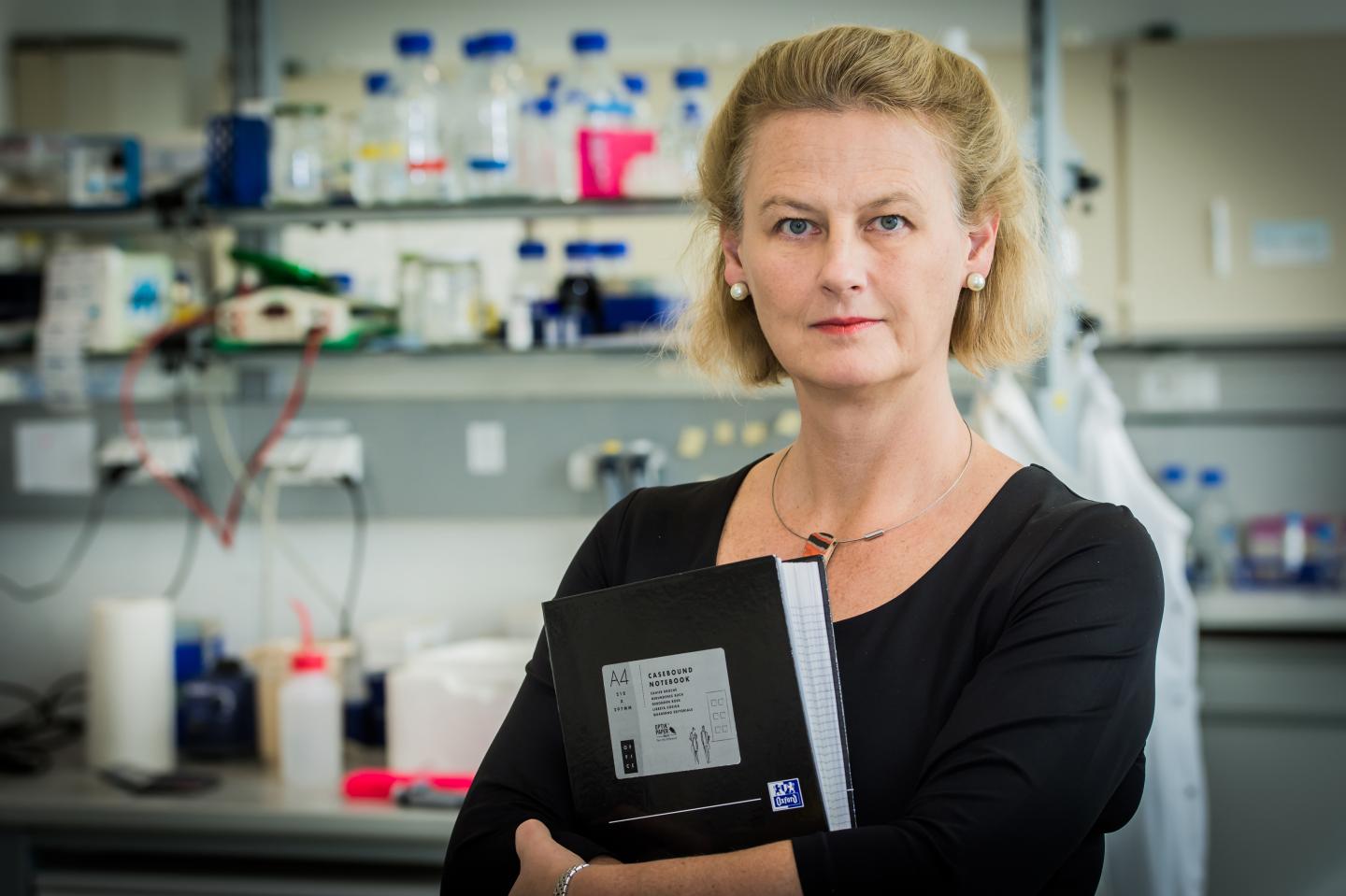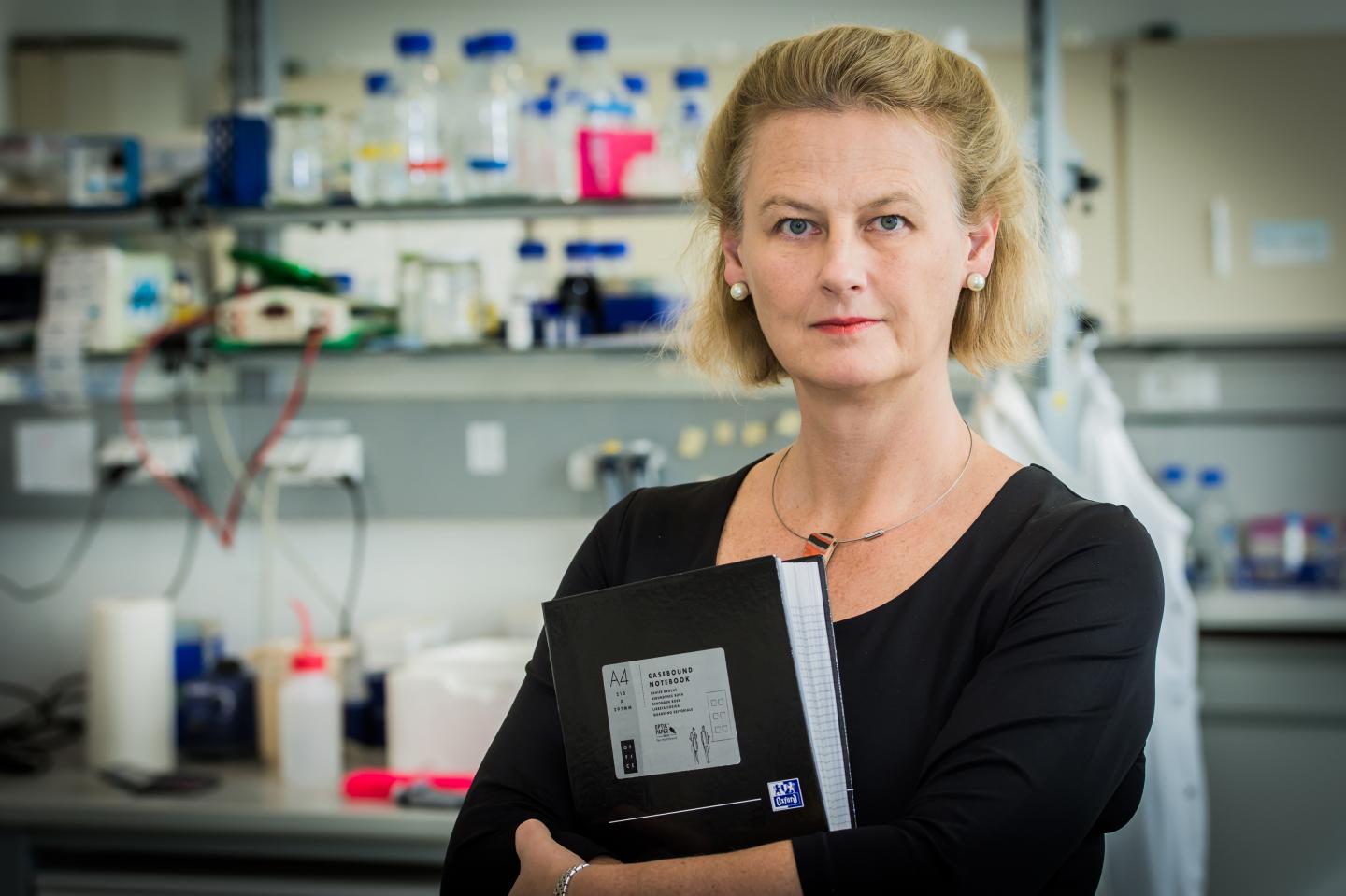
The body’s defences detect and eliminate not only pathogens but also tumour cells. Natural killer cells (NK-Cells) are specifically activated by chemical messengers, the Cytokines, to seek and destroy tumour cells. Veronika Sexl and her team from the Institute of Pharmacology and Toxicology at the Vetmeduni Vienna study the fundamentals of tumour surveillance by the immune system in animal models.
Cytokines trigger a signal cascade in NK cells recruiting them to tumour defence. An important player in this signalling process is the transcription factor STAT1. This molecule enters the cell nucleus to turn on genes required for the activation of NK cells. Until now it was assumed that NK cells are triggered by STAT1 mediated gene activation. However, Sexl and her team have now discovered that not gene transcription, but a previously unknown mechanism of STAT1 activates NK cells.
Genetics revealed unknown function of STAT1
The importance of the signalling molecule STAT1 for NK cells is revealed when it is absent. Without STAT1 tumour cells are inefficiently eliminated. The researchers wondered however, whether STAT1’s nuclear activity as transcriptional activator is essential for its function. “The activation of other genes is to date the only known and accepted function of STAT1. In order to show the actual role in the activation of NK cells we genetically removed this function, “said lead author Eva Putz.
To do so Sexl teamed up with researchers from the US and the University of Vienna, and generated mice with a modified STAT1. This altered STAT1 molecule is incapable of turning on genes by virtue of a single change in the protein sequence. Despite this modification, the NK cells were still surprisingly effective in eliminating tumour cells. “The activation of NK cells therefore depends on a previously unidentified STAT1 function, since the molecule without the known activity continues to function,” explains Sexl.
The Immunological synapse harbours STAT1 for activation of NK cells
Using various experiments, Sexl and her co-workers could prove that STAT1 is capable of not only activating genes but also working directly with key players in the signalling process outside the nucleus. “A transcription factor performs its job in the cell nucleus, where the DNA is. But we observed STAT1 in activated NK cells not in the nucleus, but in regions close to the cell membrane, where NK cells and tumour cells meet” says Putz. Apparently, STAT1 does not need to enter the nucleus in order to activate NK cells. Instead, STAT1 appears to be directly involved in the signalling of the NK cells, which upon activation eliminate the tumour cells. This represents a new function of STAT1, entirely independent of gene transcription.
“It will be an exciting challenge to explore this previously unknown function of STAT1 in tumour surveillance. Improving the mobilisation of NK cells in cancer patients is an intense area of research to make anti-tumour therapy more effective”, concludes Sexl.
###
Service:
The article “Novel non-canonical role of STAT1 in natural killer cell cytotoxicity” by Eva Maria Putz, Andrea Majoros, Dagmar Gotthardt, Michaela Prchal-Murphy, Eva Maria Zebedin-Brandl, Daniela Alexandra Fux, Andreas Schlattl, Robert D. Schreiber, Sebastian Carotta, Mathias Müller, Christopher Gerner, Thomas Decker and Veronika Sexl published in the Journal OncoImmunology. doi:10.1080/2162402X.2016.1186314 http://www.tandfonline.com/doi/abs/10.1080/2162402X.2016.1186314?journalCode=koni20
About the University of Veterinary Medicine Vienna
The University of Veterinary Medicine Vienna (Vetmeduni Vienna) is one of the leading veterinary, academic and research facilities in Europe. Its main focus is on the research fields of animal health, food safety, animal husbandry and animal welfare as well as biomedical fundamentals. The Vetmeduni Vienna has 1,300 employees and is currently training 2,300 students. The campus in Floridsdorf, Vienna has five university hospitals and numerous research institutions at its disposal. Two research institutes at Wilhelminenberg, Vienna and a Teaching and Research in Lower Austria also belong to the Vetmeduni Vienna. http://www.vetmeduni.ac.at
Scientific contact:
Veronika Sexl
Institute of Pharmacology and Toxikology
University of Veterinary Medicine Vienna (Vetmeduni Vienna)
T +43 1 25077-2910
[email protected]
Released by:
Georg Mair
Science Communication / Corporate Communications
University of Veterinary Medicine Vienna (Vetmeduni Vienna)
T +43 1 25077-1165
[email protected]
Media Contact
Veronika Sexl
[email protected]
43-125-077-2910
http://www.vetmeduni.ac.at
The post New mechanism activates the immune system against tumor cells appeared first on Scienmag.





